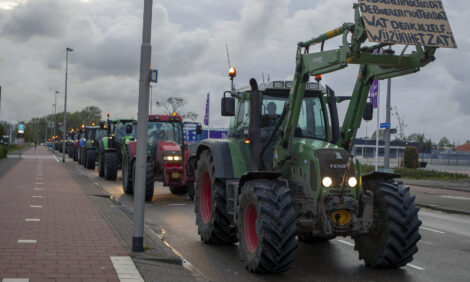



bTB & Brucellosis Compensation Consultation
NORTHERN IRELAND, UK - This second consultation, will run from 5 October to 2 December 2011 and follows a previous consultation exercise that took place from 23 February to 21 April 2011.
The revised proposals were outlined by DARD officials at a recent meeting with the Assembly’s Agriculture and Rural Development Committee.
Speaking after the meeting, the Agriculture Minister, Michelle O’Neill, said: “Following consideration of the responses to the first consultation exercise and the comments of the ARD Committee, my Department has developed revised proposals for TB and brucellosis compensation based on the principle of applying a cap on compensation."
“We are also proposing to reduce the rate of compensation for brucellosis in-contact animals to 75 per cent.”
Minister O’Neill pointed out that the revised proposals do not include the introduction of table-based valuation.
The Minister went on to say: “Three options are being consulted on which involve different methodologies on how a cap could be applied and at what level it could be set. Under all options, TB and brucellosis affected animals would continue to be individually valued by DARD Valuation Officers."
“Additionally, the maximum amount of compensation payable for animals removed for TB would be set at a maximum of 100 per cent of the relevant cap and the maximum amount of compensation payable for brucellosis animals would be set at 75 per cent of the relevant cap.”
Explaining the reasons why the Department is bringing forward the revised proposals, the Minister said: “We believe this change will encourage greater awareness on the part of farmers of the need to adopt sound biosecurity practices and will help to drive towards the early eradication of brucellosis."
"Eradicating this costly disease will benefit all herdkeepers. It will lead to the subsequent progressive relaxation of control measures such as annual testing and pre-movement testing, which costs herdkeepers some £7 million per year."
“We have also a responsibility to strike a proper and appropriate balance between ensuring reasonable compensation for farmers affected by a decision to slaughter their animals on the one hand, and protecting the interests of the taxpayers on the other. This point has been raised by both our own Public Accounts Committee and by the EU.”
TheCattleSite News Desk


